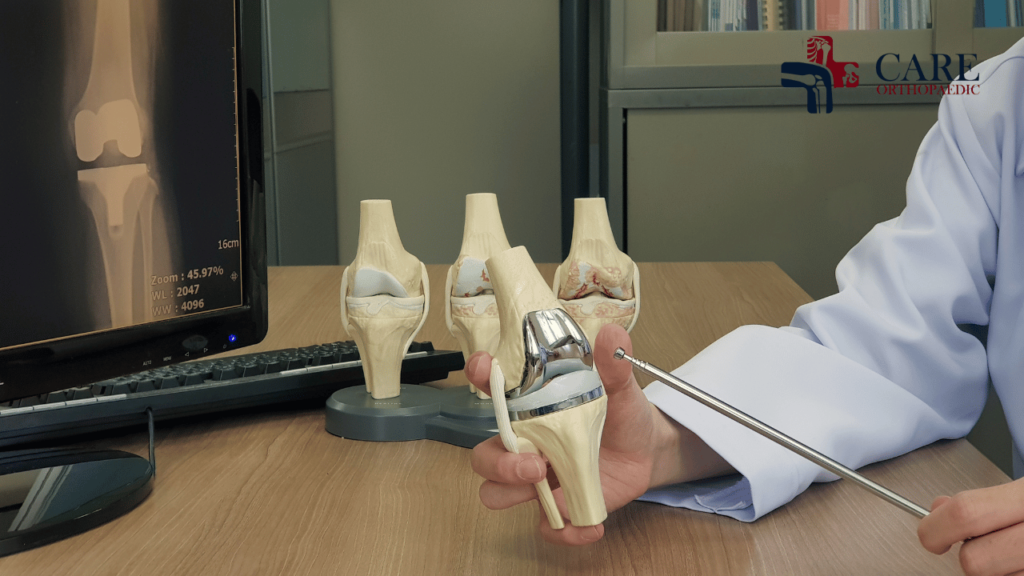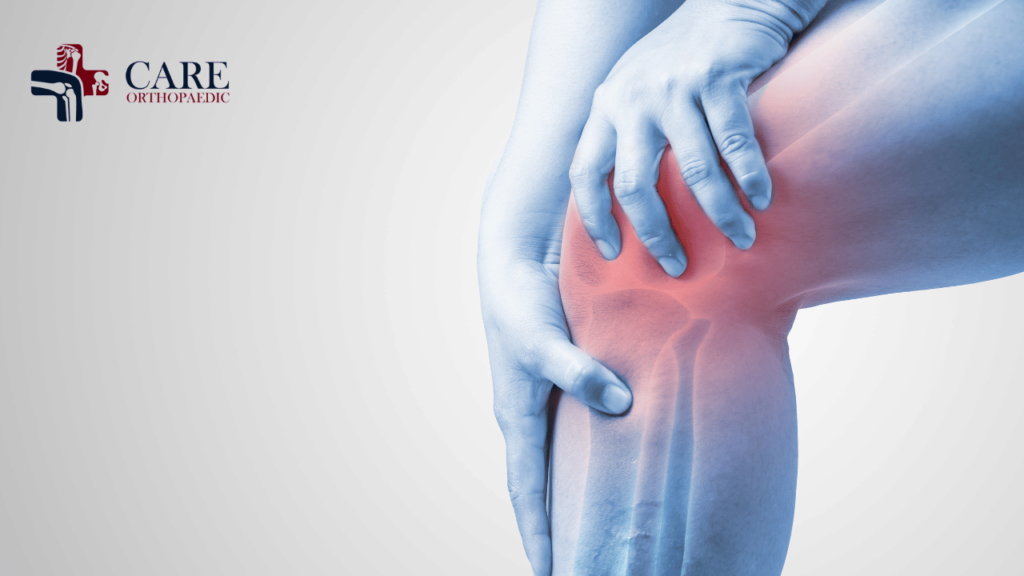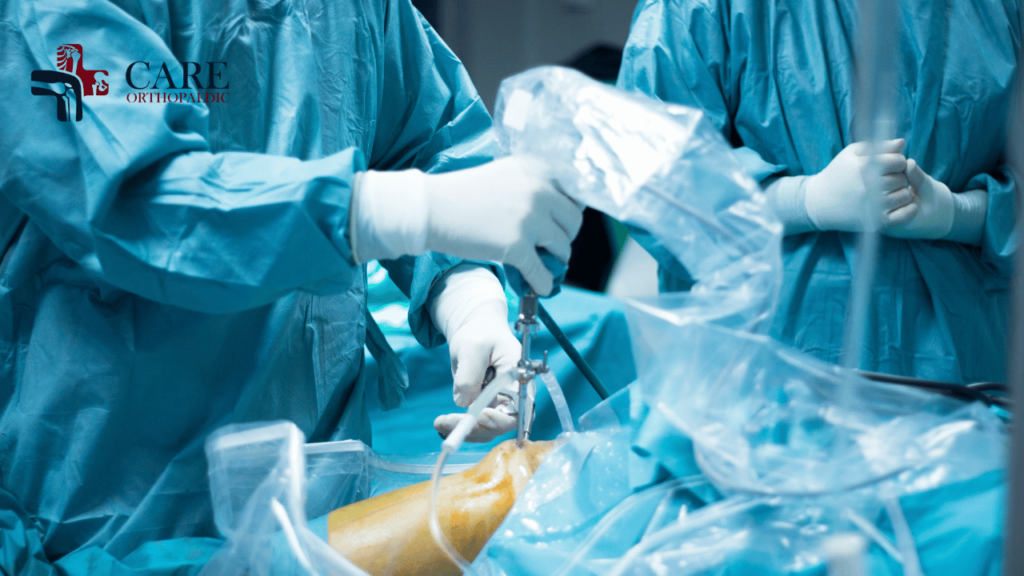Summary
Hip replacement surgical treatment is a substantial clinical improvement, supplying brand-new hope to those dealing with extreme hip pain and instability. In Hyderabad, CareOrthopaedics stands as a sign of quality in orthopaedic treatment, concentrating on total hip substitute surgeries that recover energetic ways of living for those interfered with by hip problems. This thorough overview intends to provide you with all the needed information about complete hip replacement in Hyderabad, leading you from pre-surgery prep work to post-surgery recovery.

What is Hip Replacement Surgery?
A total hip substitute surgical procedure, medically called complete hip arthroplasty, entails the elimination and replacement of a diseased hip joint with a prosthetic implant. This treatment is mainly carried out to relieve discomfort and boost or completely bring back mobility, most commonly necessitated by conditions such as osteoarthritis, rheumatoid arthritis, osteonecrosis, or various other distressing injuries to the hip joint.
At CareOrthopaedics in Hyderabad, a group of specialist specialists uses advanced modern technology and medical strategies to execute hip replacements, guaranteeing high precision and improved outcomes for people.
Exactly How do you prepare for a Hip Replacement Surgical Procedure?
Preparation for a hip replacement surgical procedure is diverse, entailing several crucial steps to ensure the security and success of the treatment:
Medical and Physical Assessment: Comprehensive assessments by your doctor, consisting of blood examinations, imaging studies, and physical assessments, to identify your viability for surgical procedure.
Drug Evaluation: Go over all your existing medications with your doctor to prevent any type of complex surgical treatment or recovery.
Home Preparation: Modifying your space for accessibility post-surgery, such as securing loosened carpets, setting up a resting location on the first stage, and setting up security bars in the shower room.
Pre-surgical education and learning: attending sessions that describe the surgery, post-operative care, and the rehab process. CareOrthopaedics offers thorough pre-operative education to help patients totally plan for what to anticipate.

What to Anticipate After Hip Replacement Surgery?
After going through a complete hip substitute in Hyderabad at CareOrthopaedics, individuals are moved to recovery, where prompt post-operative care starts:
Healthcare Facility Stay: Usually, the stay lasts from a few days to a week, depending on the private recovery speed and any problems.
Discomfort Monitoring: First discomfort is managed via medicines and progressively lowers as recovery progresses.
Physical Wheelchair: Under the assistance of a physiotherapist, you will certainly begin mobilization exercises within a day after surgery to promote blood flow and prevent embolisms.
Just How Soon Can You Walk After an Overall Hip Substitute?
Wheelchair post-surgery is a common issue. At CareOrthopaedics, the rehab group urges strolling with the aid of a walker or crutches, usually within the initial 24 to 2 days after a surgical procedure. The development of unaided strolling will certainly depend upon individual patient healing; however, the majority of patients have the ability to walk without support within 3 to 6 weeks.
What Are the Issues After Hip Substitute Surgery?
While overall hip replacement is typically secure, it carries possible dangers, like any significant surgery.
Infection: avoided with prescription antibiotics and clean and sterile methods, yet still a watch-out for all post-operative individuals.
Blood Clots: Lessened with blood slimmers and early mobilization.
Hip misplacement: protected against by following movement limitations post-surgery.
Prosthesis Issues: Such as wear or helping to loosen gradually, normally happening several years after the surgical treatment.
CareOrthopaedics executes comprehensive methods to minimize these dangers, utilizing advanced medical techniques and strenuous post-operative care protocols.
Rehab after THR
Rehabilitation starts instantly and is important for a complete recovery. CareOrthopaedics offers a tailored rehabilitation program that includes:
Physical Therapy: To strengthen muscles around the new hip and enhance versatility.
Work Therapy: To assist clients in adapting to daily activities without taking the chance of the brand-new hip’s honesty.
Safety measures after THR
Post-operative safety measures are crucial to avoid issues and ensure the durability of the hip implant.
Activity Limitations: Avoiding high-impact activities and making steady returns to daily tasks.
Positional Preventative Measures: Avoid crossing legs or flexing over 90 levels to avoid dislocation.
Way of Living Modifications: Long-term changes such as keeping a healthy weight, remaining active within doctor-recommended restrictions, and regular follow-ups.

Conclusion
Picking to undertake an overall hip replacement in Hyderabad at CareOrthopaedics guarantees you obtain top-tier treatment from experienced cosmetic surgeons and a dedicated support group. Our extensive method guarantees not just medical success but also a return to a pain-free, active way of life.
To learn more about how we can help you live without hip pain, contact CareOrthopaedics today and take your first step towards a brand-new life.
Leading 5 FAQs on Complete Hip Substitute
1. What problems usually require an overall hip replacement?
Solution: Overall hip replacement surgery is typically recommended for individuals experiencing severe joint inflammation (such as osteoarthritis, rheumatoid joint inflammation, and post-traumatic joint inflammation), hip cracks, or problems like avascular death where the blood supply to the bone is jeopardized. These conditions typically cause crippling discomfort, stiffness, and a substantial reduction in lifestyle, which the surgical procedure intends to alleviate.
2. How long does an overall hip substitute surgical treatment take, and what is the anticipated healthcare facility that remains?
Answer: The surgical treatment itself normally takes between 1 and 2 hours. The overall size of a health center stay can vary depending on specific aspects, but many people are expected to stay in the healthcare facility for 3 to 5 days. This period enables ample tracking, the administration of pain, the initiation of physical treatment, and ensuring that the person is medically stable before discharge.
3. What is the durability of a hip-replacement dental implant?
Answer: Modern hip substitute implants are developed to last for years. On average, present implants last 15–20 years. Prior to this, there may be a demand for a modified surgical procedure, depending on elements such as the person’s task degree, weight, and total health.
4. What are the primary risks or problems associated with a complete hip replacement?
Solution: Although overall hip replacement is typically considered safe, all surgical treatments carry some risk. Common issues include infection, blood clots, hip misplacement, and the gradual the gradual wear and tear of the prosthetic. Advanced surgical techniques and post-operative care at facilities like CareOrthopaedics substantially reduce these risks.
5. When can I go back to typical tasks after hip replacement surgery?
Solution: Recovery times can differ, but most clients can go back to light activities within 3 to 6 weeks post-surgery. Full recuperation, including the capability to engage in more arduous activities, could take 3 to 6 months. It’s critical to comply with a customized physical therapy routine and adhere to your specialist’s guidance on task constraints to guarantee the most effective end result.


